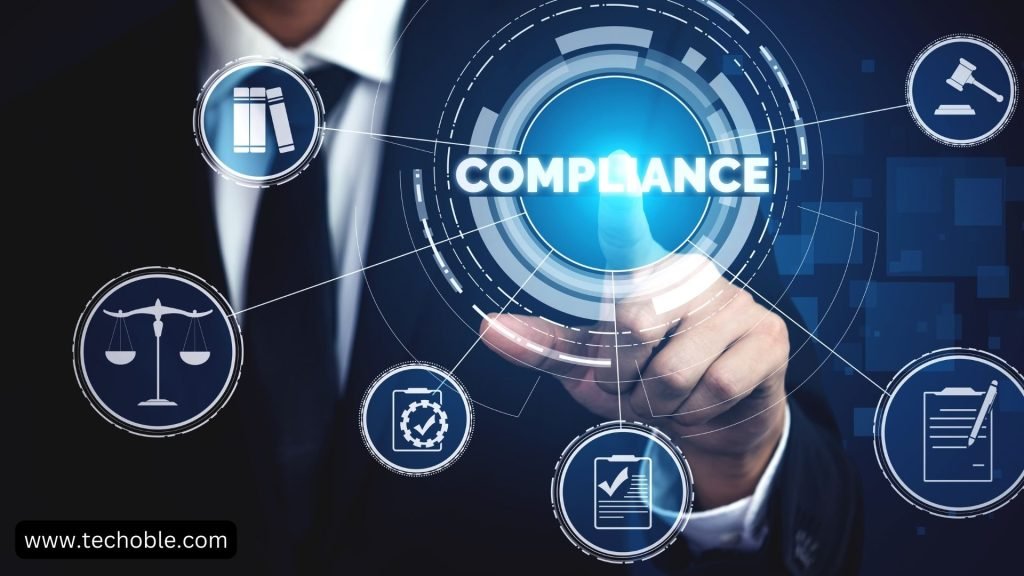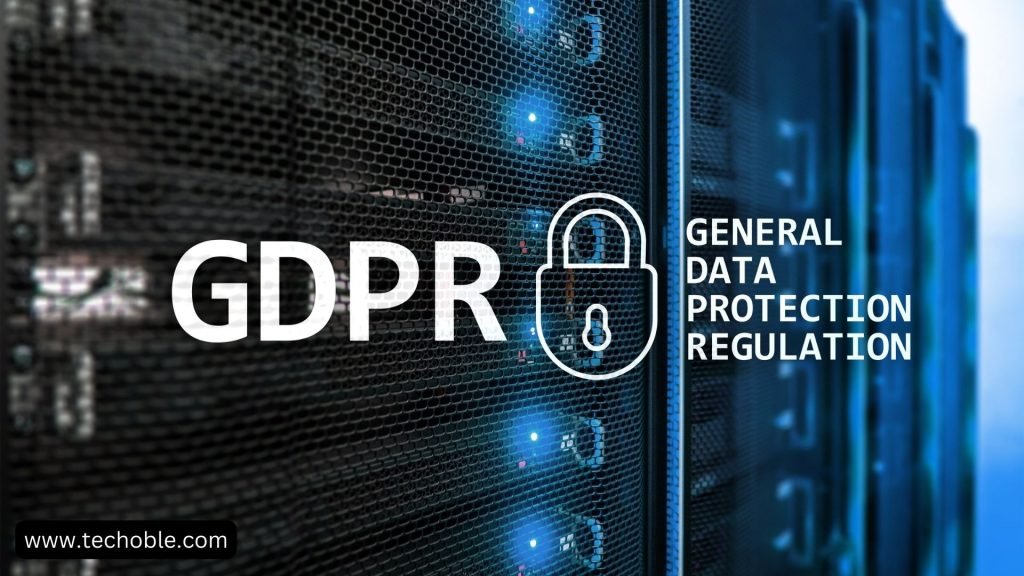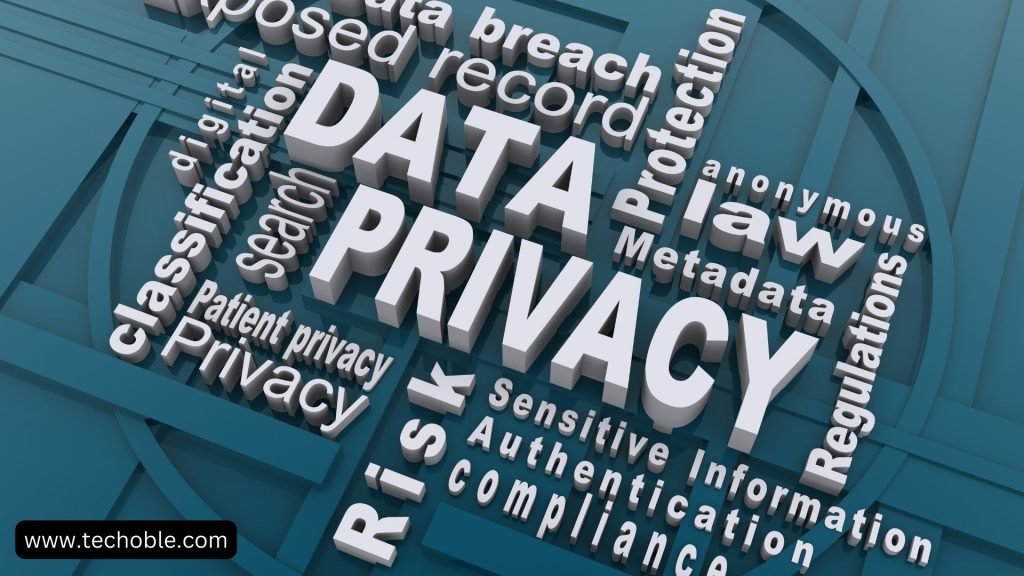 Data security compliance is no longer optional in 2025. Companies around the world must adhere to strict regulations such as the General Data Protection Regulation (GDPR) and the California Consumer Privacy Act (CCPA). These laws aim to protect the personal information of individuals and set guidelines for how businesses manage, store, and process data. Failing to comply with these laws can result in hefty fines and damage to a company’s reputation.
Data security compliance is no longer optional in 2025. Companies around the world must adhere to strict regulations such as the General Data Protection Regulation (GDPR) and the California Consumer Privacy Act (CCPA). These laws aim to protect the personal information of individuals and set guidelines for how businesses manage, store, and process data. Failing to comply with these laws can result in hefty fines and damage to a company’s reputation.
Whether you’re a small business owner or an international corporation, knowing how to comply with data privacy regulations is essential. This article breaks down the complexities of global data privacy laws in 2025 and offers actionable steps to ensure compliance.
What Are the Regulations such as GDPR and CCPA?
Several key data protection laws of the world in 2025 are shaping the way companies handle sensitive information. The two most influential are:
1. General Data Protection Regulation (GDPR)
The GDPR is a comprehensive privacy law introduced by the European Union in 2018. It applies to businesses that collect or process data from EU citizens, regardless of the company’s location.
Key Requirements:
- Data Subject Rights: Individuals can request access to, correction, or deletion of their personal data.
- Lawful Processing: Organizations must have a legal basis (e.g., consent) for collecting personal data.
- Data Breach Reporting: Companies must notify authorities of data breaches within 72 hours.
2. California Consumer Privacy Act (CCPA)
The CCPA is a U.S.-based regulation that gives residents of California greater control over their personal data. It requires businesses to offer transparency about what data is collected and how it’s used.
Key Features:
- Right to Opt-Out: Individuals can ask companies not to sell their data.
- Data Access Requests: Consumers have the right to know what data is stored and request its deletion.
- Penalties: Companies that fail to comply face fines of up to $7,500 per violation.
How Do You Comply with Data Privacy Laws?
Achieving compliance requires a structured approach. Businesses need to focus on policies, procedures, and technologies to ensure they meet global standards.
Here’s a step-by-step guide on how to comply with GDPR regulations and CCPA rules:
1. Conduct a Data Audit
- Identify what personal data you collect, store, and process.
- Use data mapping tools to locate where sensitive information is stored.
- Classify data into categories such as personal data, financial information, and health records.
2. Update Privacy Policies
- Draft clear and concise privacy policies that explain data collection practices.
- Make policies easily accessible to customers and employees.
3. Implement Consent Management Systems
- Use consent management platforms to track user permissions.
- Ensure that individuals can easily opt-in or opt-out of data collection.
4. Provide Employee Training
- Teach employees how to comply with data protection at work by handling information securely.
- Regular training ensures staff stay updated on the latest international data protection laws.
5. Encrypt and Anonymize Data
- Use encryption to protect data both at rest and in transit.
- Apply anonymization techniques to minimize risks if a breach occurs.
Table: Key Differences between GDPR and CCPA
| Aspect | GDPR | CCPA |
|---|---|---|
| Scope | Applies to EU citizens’ data worldwide | Focuses on California residents’ data |
| Consent Requirement | Mandatory opt-in | Opt-out option for data selling |
| Data Access Requests | Right to access, correct, and delete data | Right to know, delete, and opt-out |
| Fines | Up to €20 million or 4% of global turnover | $2,500 to $7,500 per violation |
| Data Breach Notification | Must notify within 72 hours | No strict timeline |
How Do You Comply with Data Protection at Work?
Businesses must integrate data protection practices into everyday operations. This includes:
- Restricting Access: Only authorized personnel should have access to sensitive data.
- Secure Storage: Use encrypted storage systems for customer and employee data.
- Regular Audits: Monitor compliance with internal data policies through frequent audits.
- Incident Response Plans: Prepare a breach response team to act quickly if data is compromised.
What Are Data Protection Laws?
Data protection laws are designed to safeguard personal information from misuse, unauthorized access, and breaches. They ensure that companies collect only the necessary data and use it responsibly.
These laws typically provide:
- Transparency: Companies must inform individuals about data collection practices.
- User Rights: People have the right to access and control their personal data.
- Security Standards: Organizations must follow best practices to secure data.
Global Data Privacy Laws in 2025
Several countries have introduced or updated their data privacy laws, creating a complex regulatory environment. Here are some data privacy laws by country:
- Brazil – LGPD (Lei Geral de Proteção de Dados):
Brazil’s LGPD mirrors many aspects of the GDPR, emphasizing user rights and data security. - India – Digital Personal Data Protection (DPDP) Act:
The DPDP Act focuses on individual consent and aims to hold companies accountable for data breaches. - Canada – CPPA (Consumer Privacy Protection Act):
Expected to replace PIPEDA, the CPPA strengthens consumer privacy rights.
What International Privacy Regulations Provide to International Data Subjects?
International regulations like GDPR aim to extend protection to citizens regardless of where their data is processed. This means that companies must comply even if they are located outside the jurisdiction of the data subject.
Best Practices to Stay Compliant with Data Protection Laws of the World 2025
Following global data privacy laws in 2025 can be challenging, but these best practices can help:
- Use Data Protection Tools: Platforms like OneTrust and TrustArc automate compliance management.
- Monitor Regulatory Changes: Subscribe to International Data Privacy Law journals to stay updated.
- Implement Privacy by Design: Build privacy features into products and systems from the start.
Innovative Technologies for Data Security Compliance
Staying compliant requires adopting cutting-edge technologies:
- AI-powered Compliance Platforms:
- AI tools can identify data risks and automate compliance audits.
- Blockchain for Data Integrity:
- Blockchain ensures transparent and tamper-proof data records.
- Zero Trust Security:
- This model limits access to data, reducing the risk of insider threats.
Case Study: How Google and Meta Handle Compliance
Both Google and Meta faced challenges complying with international privacy regulations:
- Google updated its platforms with user-friendly privacy controls to meet CCPA standards.
- Meta had to pay hefty fines under GDPR but improved its data policies and transparency.
Complying with international data protection laws such as GDPR, CCPA, and others is crucial for businesses in 2025. By conducting data audits, updating policies, and using innovative tools, companies can stay compliant and protect personal information.

